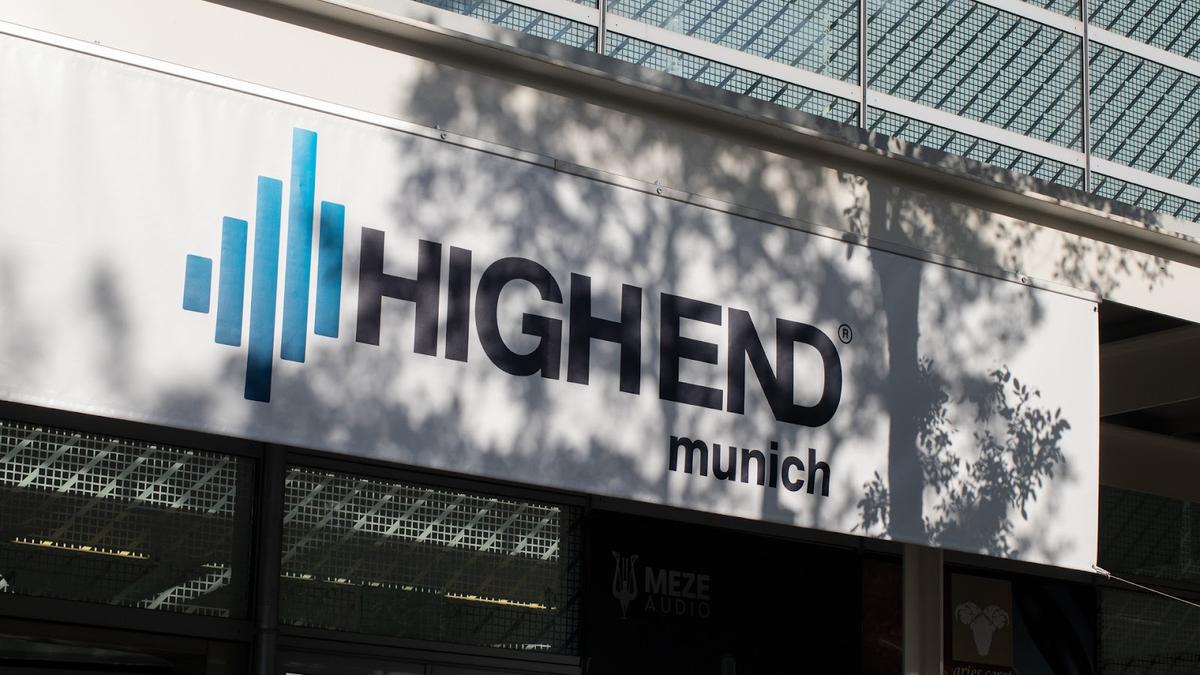Postponed nearly 3 years, we bring you detailed coverage of the HIGH END Munich 2022 International Audio show.
I have been living in Munich since 2017, and could only attend one HIGH END Munich show. Due to the pandemic, the show was postponed multiple times over the past few years.
So, when I heard that it was making a comeback in May of 2022, I ditched all my plans for that weekend and scheduled everything surrounding the show. The show was organized at the MOC Munich, and booths spanned multiple buildings and floors. Overwhelming, to put it mildly, but that didn’t deter me from trying to see everything!
After two days of exhaustive listening and meeting with people, I formed impressions of many new releases, including some obscure ones. Read on.
Reference Gear
The following gear was used as a point of reference when evaluating show-floor devices.
- DAP: Lotoo PAW 6000
- IEMs: SoftEars Turii, Campfire Audio Holocene
- Headphones: Hifiman HE-6se V2, Sennheiser HD650, ZMF Atrium
Best of the Show
Biggest Surprises
Astell&Kern
Astell&Kern showcased its latest DAP (Digital Audio Player) – the A&K KANN Max. The key difference between the KANN Max and the outgoing KANN Alpha is that A&K has managed to shrink down the dimensions while keeping the same output power and battery capacity.
As for sound, the KANN Max is an absolute powerhouse. It drives demanding planars like the DCA Stealth to decent loudness while delivering much of the staging and dynamics those headphones are known for. For moderately efficient headphones like Focal Clear Mg, the KANN Max is more than adequate.
Definitely, one of the DAPs I am planning to fully review in the near future.
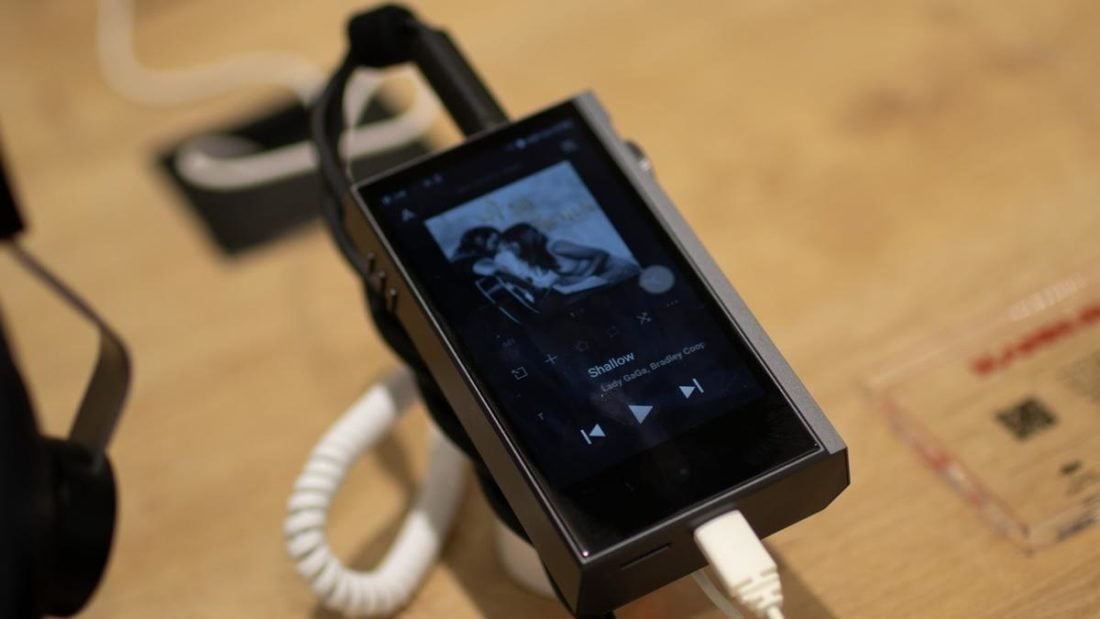
Audeze
I had the opportunity to try both the Audeze LCD-5 and the Audeze CRBN electrostats. The LCD-5 were running through a Violectric HPA V550 Pro and the CRBN were hooked to a Mjolnir Carbon CC.
First up, the LCD-5. These are lighter and more comfortable than the previous Audeze flagships. I have no qualms with their build, fit, or finish.
When it comes to the sound though, I am left underwhelmed. The LCD-5 sound boring and lackluster. Moreover, planar timbre is evident throughout, something I hoped Audeze would be able to minimize in their latest generation planar driver.
The LCD-5 are very resolving, but lack the refinement of tone and timbre that I expect at this summit-fi range.
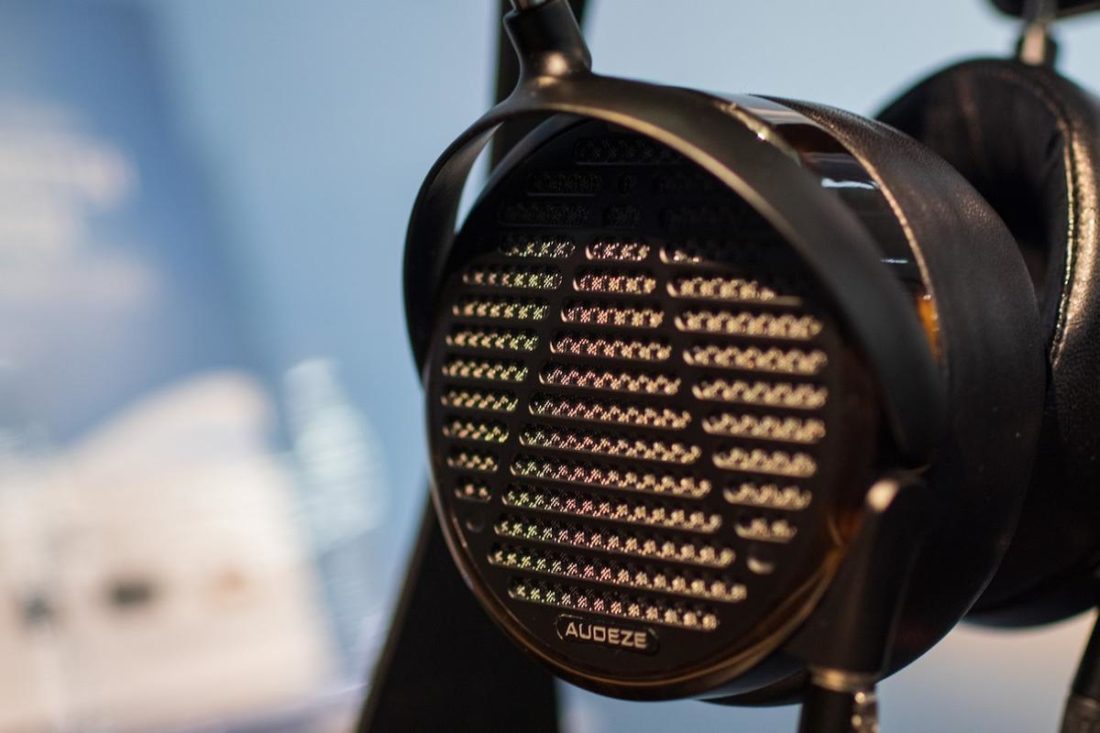
Next up were the CRBN. These are perhaps the lightest electrostats I have tried so far. This lightness almost make the ear cups feel hollow, but I guess there is no need to fret over the build quality. Audeze has used carbon-fiber and magnesium to minimize weight without sacrificing robustness.
Electrostatic headphones are often heavily affected by the energizer they are paired with, so keep that in mind while reading my impressions.
In general, the CRBN have an upper-mid centric tuning with vocals placed front and center.
Unfortunately, it was too much for me and I find they lack depth, and the notes seem to have little weight behind them.
Bass response is linear and can punch when needed but in most tracks, the upper registers dominate the presentation. Staging also feels narrow due to the up-front vocals, though the CRBN can place instruments far and wide in tracks like Amber Rubarth’s Strive.
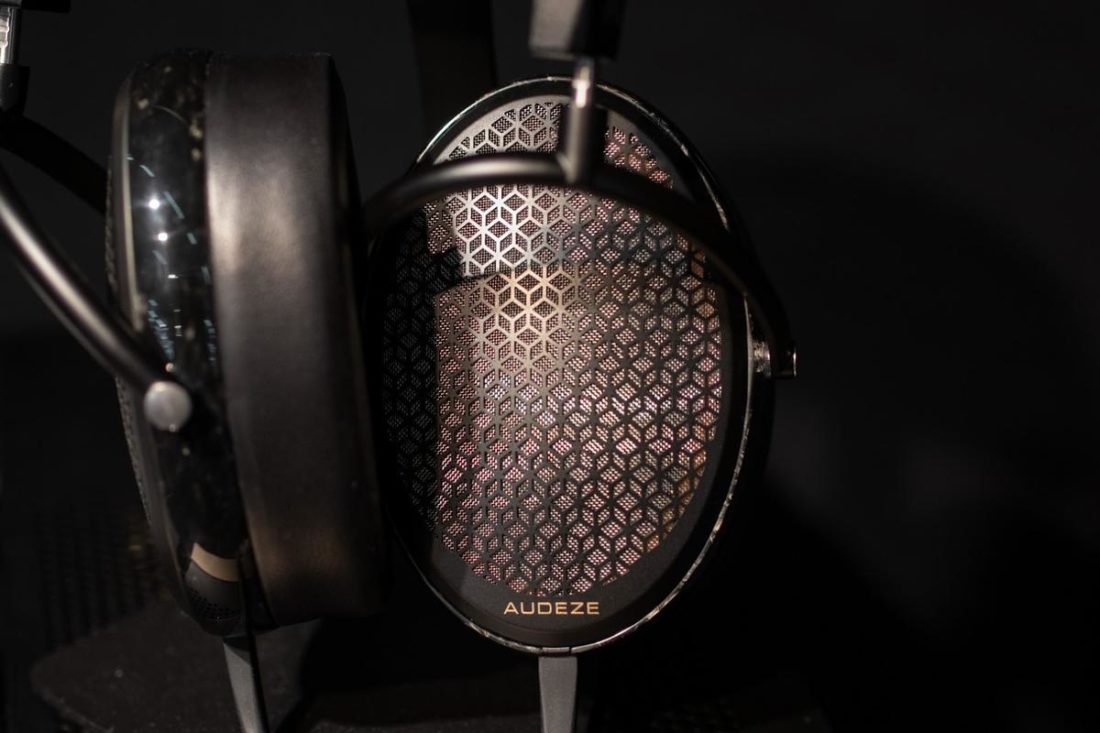
Overall, the two Audeze flagships failed to impress me. I intend to listen to them again soon to ascertain if my show-floor impressions hold up over time.
Campfire Audio
Campfire Audio’s founder, Mr. Ken Ball was present at the show with his extremely limited edition Trifecta IEMs. These have three 10mm ADLC dynamic drivers and the drivers are arranged in a triangular shape. Currently, the Trifecta are sold out (there were only 333 units made) so the show was probably my only opportunity to try them out.
I am glad I took my time to listen to these. The Trifecta are tuned in a way that is very engaging, exciting, and at times overwhelming. The bass is bold, while the treble is also pushed up near the lower-treble region (around 5-6kHz to my ears).
The lower-mids are somewhat recessed but the upper-mids are emphasized to not make the Trifecta sound muddy in the mids. The most spectacular thing about them are the staging and imaging, with a near headphone-like presentation.
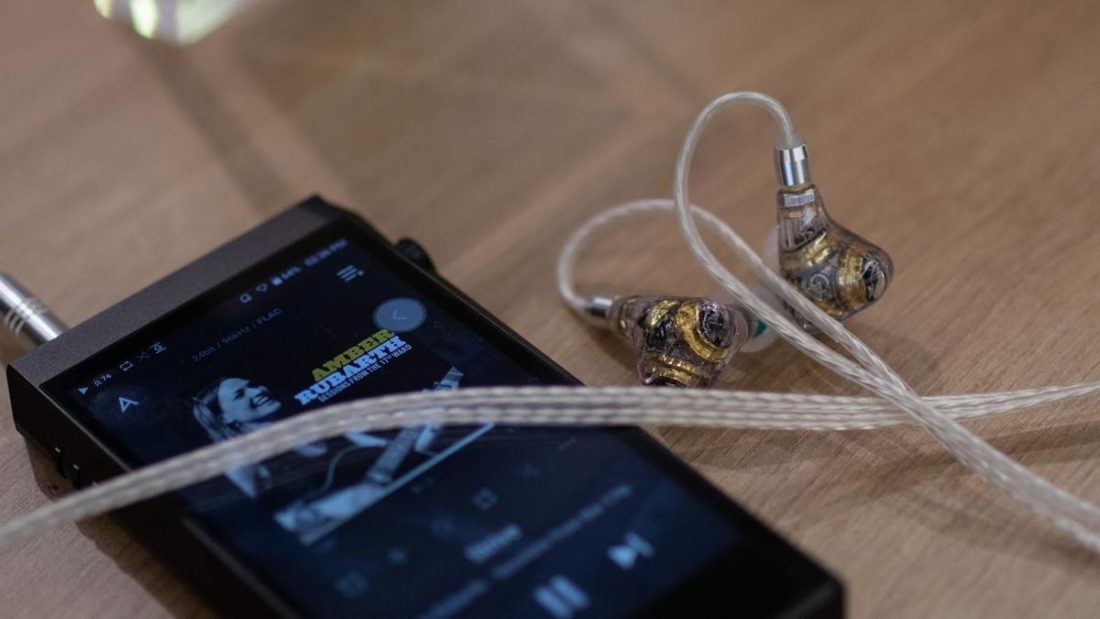
The Trifecta are not tuned to be neutral or universally suited to all genres. However, the tracks that suit the tuning are played back with abundant energy and engage the listener unlike most other IEMs out there.
It’s too bad that the Trifecta are sold out!
Chord Electronics
Chord Electronics had their recently released Mojo 2 on the show floor, with several headphones around for pairing with it. While many have lamented the lack of a USB type-C connector on the Mojo 2, I found the sound quality to be exceptional enough to overlook that shortcoming.
The Mojo 2 has better staging, imaging, and resolution than its predecessor. In terms of pairing, the Meze Elite sound stupendously good. The Elite are easy to drive but even then the separation and staging out of Mojo 2 is as good as I have heard from more upscale audio gear.
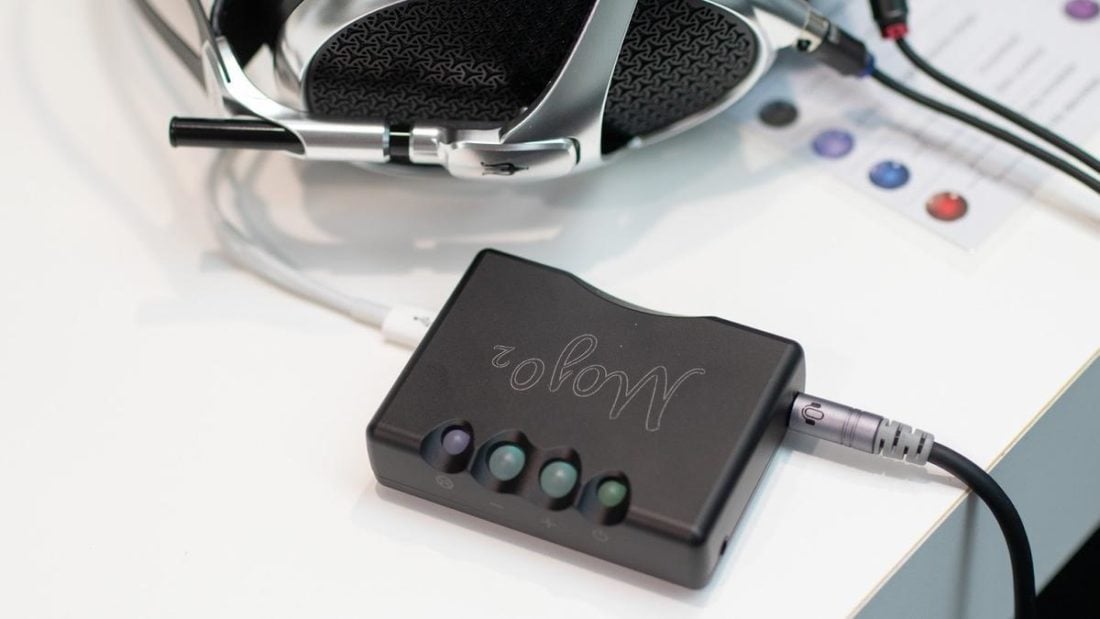
I recommend the Mojo 2 and it definitely deserves an audition if you are looking for a portable source.
Dan Clark Audio
I heard the DCA Stealth out of both a DAP (KANN Max) and the dCS Bartók 2.0. One characteristic remained constant between sources, and that is the soundstage.
The Stealth have excellent staging that can rival some open-back headphones, and given their closed-back nature they are all the more impressive. I still think the Sennheiser HD820 are the king of staging and imaging among closed-back headphones, but the Stealth get close and have better tonal balance.
dCS Audio
dCS Audio is known for its uber-expensive DACs and streamers and the patented Ring-DAC technology. The Bartók 2.0 is basically a firmware update to the original Bartok and brings new mappers and filters to the table while improving performance and stability.
Unfortunately, I could not manage enough time to really dive deep into each mapper setting, as the change in presentation was different for various headphones. However, I had a blast chatting with the reps there. They were genuinely interested in sharing the technical breakdown of features and we had a great time testing out different headphones.
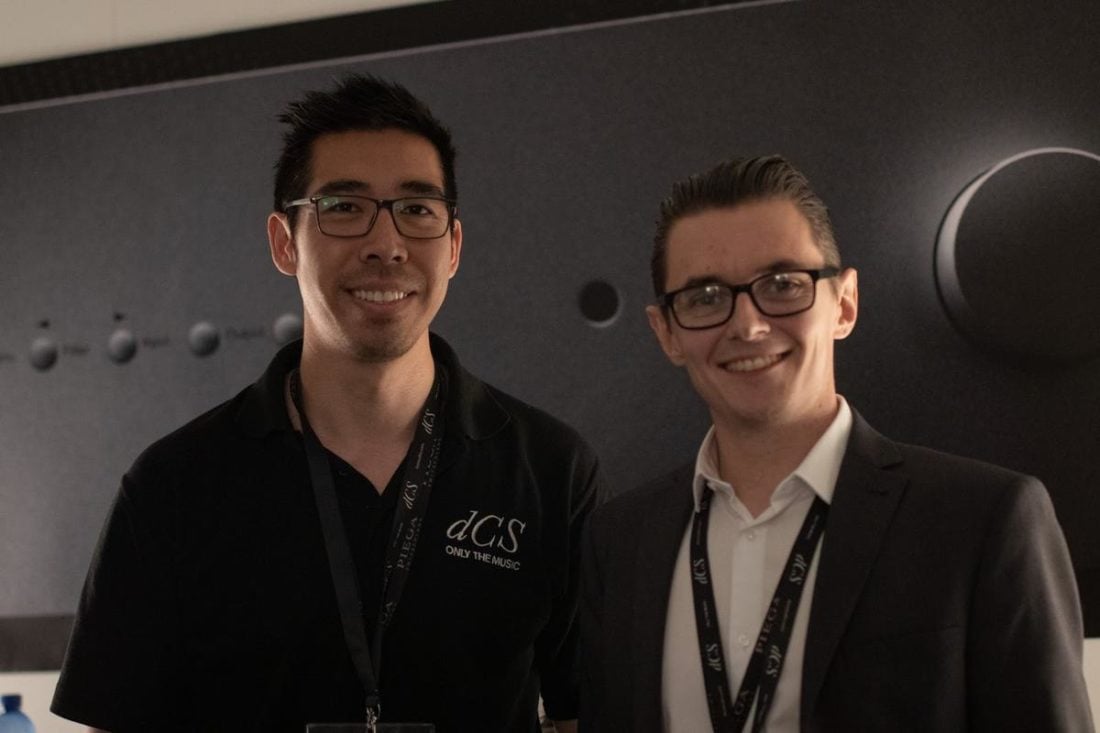
Feliks Audio
Feliks Audio is a family-run business based in Poland and the brothers were very accommodating of my requests. I spent the most time in their quiet listening room, as I tried various headphones with the Euforia and Envy amps.
I also tried out the Echo Mk. 2 since it is an OTL amp I had plans of buying, but my plans changed to something “grander” after listening to the Euforia.
The Feliks Euforia Anniversary Edition is perhaps the best OTL tube amp I have heard.
The pairing with ZMF Atrium was exceptional and I can see this combo being an endgame for many audiophiles. I was so smitten by the Atrium and Euforia AE combo that I almost overlooked the absolute behemoth sitting right beside it – the Feliks Envy.
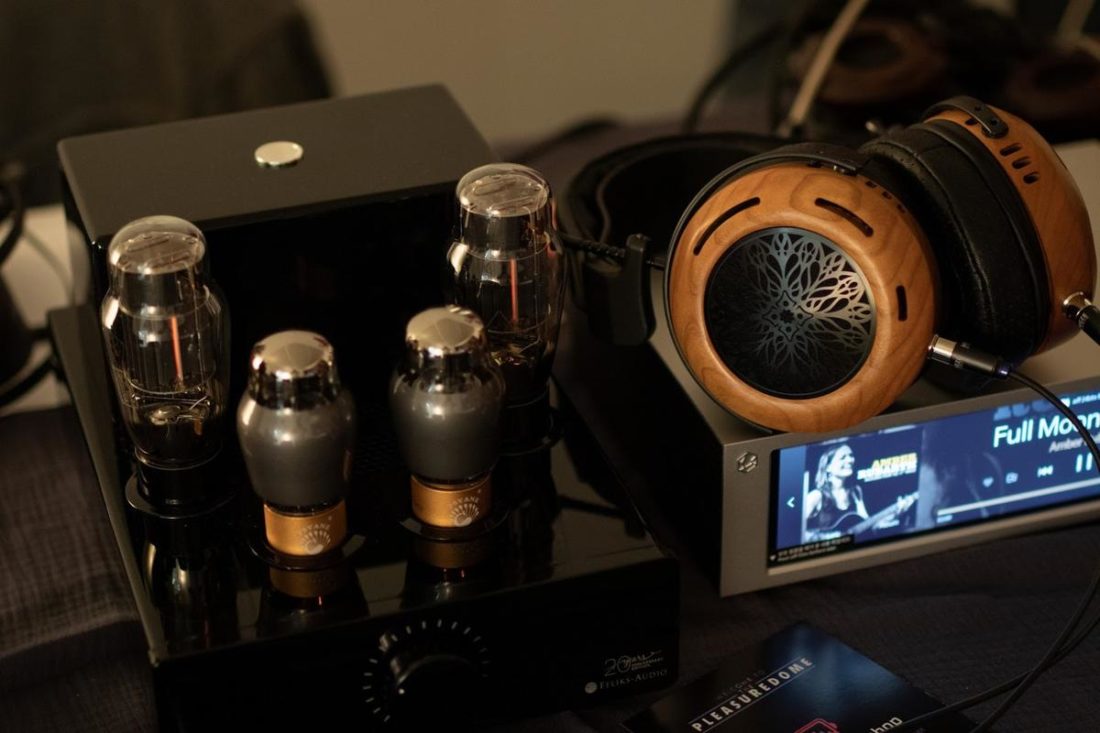
The Envy is Felik Audio’s flagship headphone amp with a transformer-coupled design running 300B tubes. The rarity and exclusivity of the tubes dictate the summit-fi price but then comes the pairing with power-hungry planars.
Simply put, the Envy drives the Hifiman Susvara as well as anything out there. I have heard the Susvara out of the PrimaLuna Evo 400 before and the Envy is in a different class altogether. Definitely, one of the best tube amps out there to pair with Susvara or Abyss 1266TC.
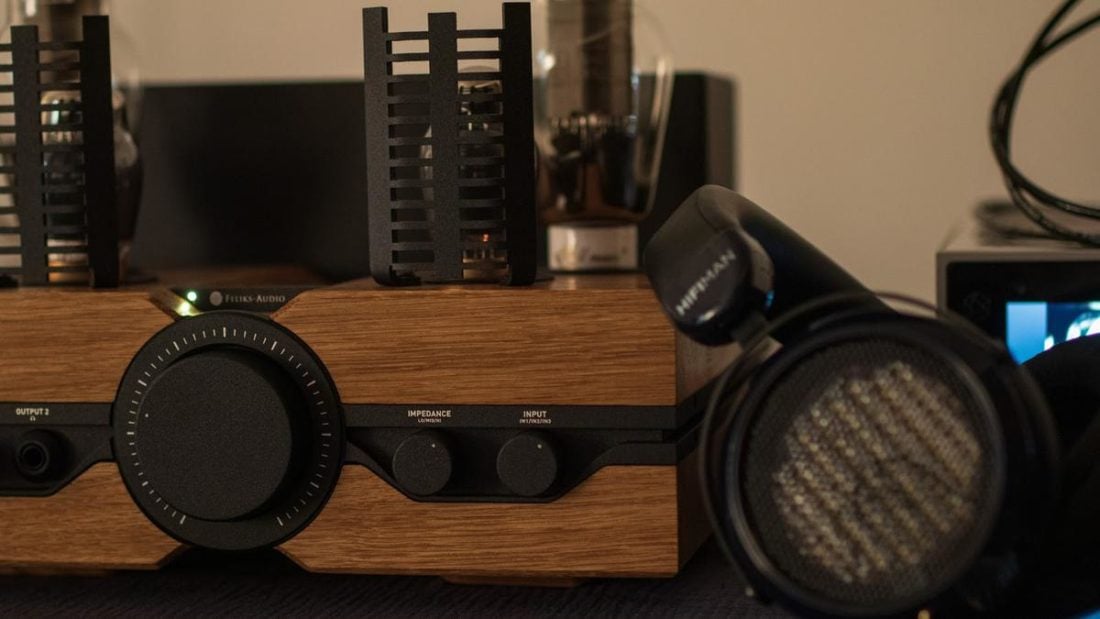
Final Audio
Final Audio had a nice listening room set up with their flagship planar headphones, the D8000 and D8000 Pro, set up for trial. The Final UX3000 was also there but I did not get a chance to listen to them.
The prime attraction was the Final D8000 Pro Limited Edition that have a new matte-black finish and more comfortable earpads. The packaging of the limited edition is also different with Final supplying an excellent padded hard case. The price increment over the regular D8000 Pro is USD $300, and I think it is justified given the extras you get.
Final also showcased their yet-unreleased ZE8000 flagship TWS earphones. These earphones will have a newly developed driver and will also support EQ via an app.
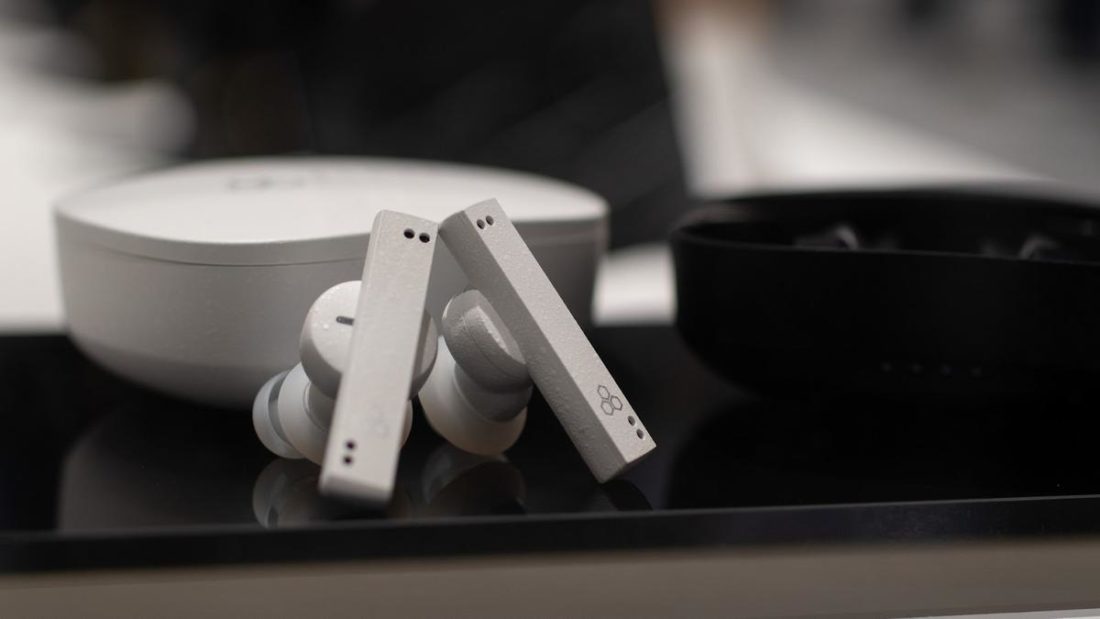
I should also mention the DAC/amp used to drive the D8000 headphones: the Copland DAC 215.
Copland is based in Denmark and I have never heard any of their amps before. The DAC 215 sounds surprisingly good for an all-in-one and the tube amplification works well with the Final D8000. The bass is textured, and rich, and the dynamics are excellent. Definitely, an all-in-one to consider.
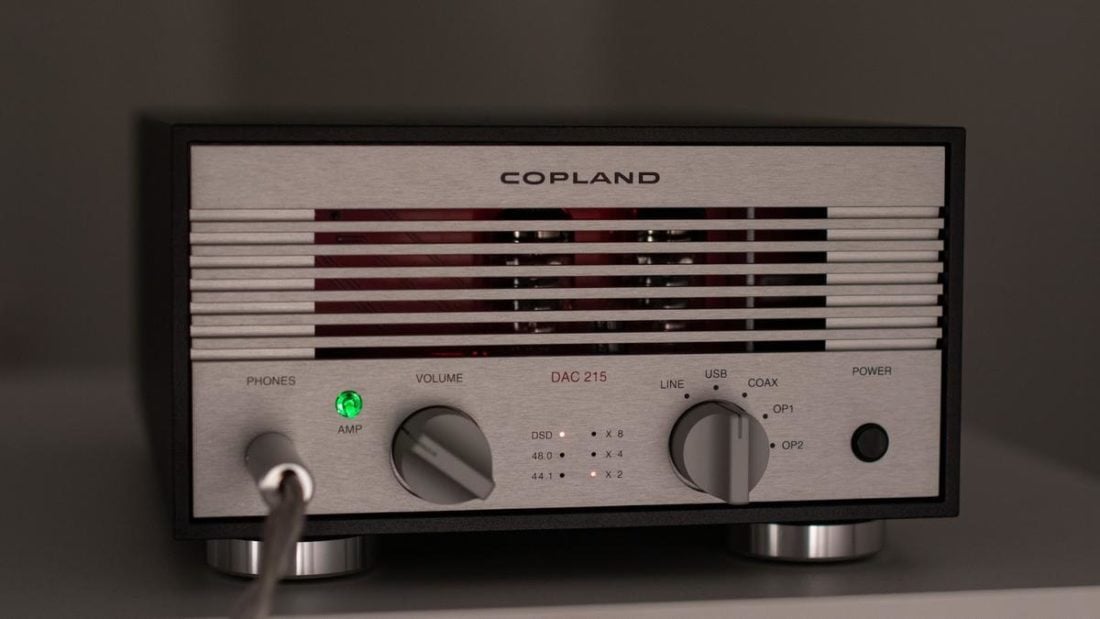
Last but not least: the Final reps were awesome! They were very friendly, accommodating, and genuinely enthusiastic about audio in general. I look forward to meeting them in future audio shows.
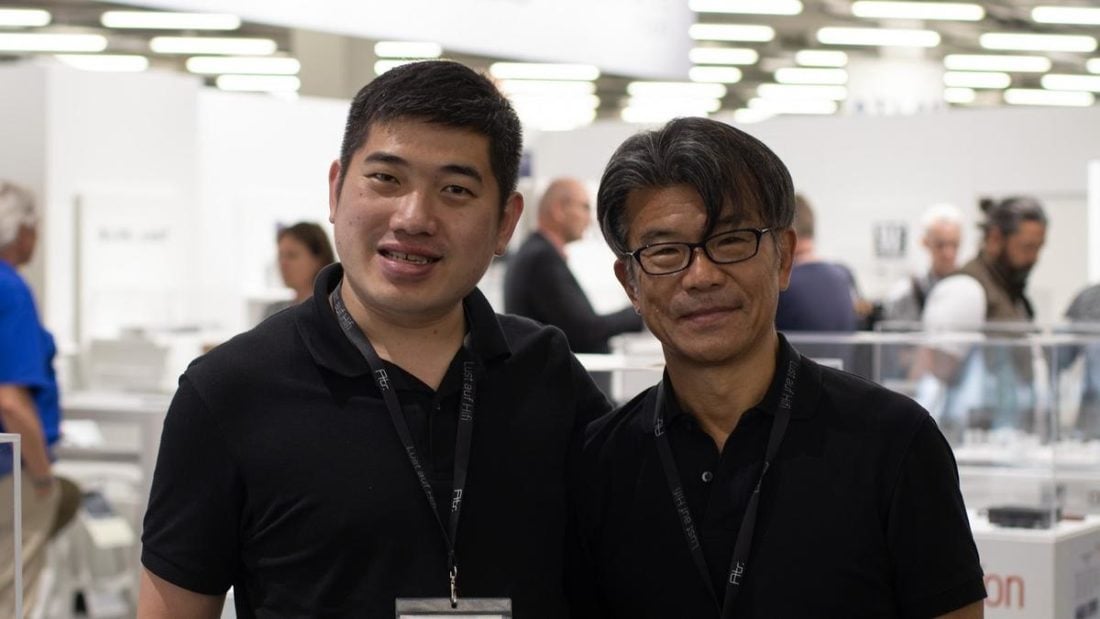
Heavys
Heavys brought the prototype of their upcoming “metal-head” headphones that can be pre-ordered through Kickstarter. In terms of tuning, this is apparently “near-final” so I am going to share some impressions here.
For a four-driver setup, the Heavys sound surprisingly coherent.
You can hear that the mid-bass and lower-mids are slightly disjointed in sound but that’s not too noticeable at all. Despite the bass focus, the mids are present and the treble has a good amount of sparkle without being fatiguing.
I look forward to trying the final product which is due near the end of the year.
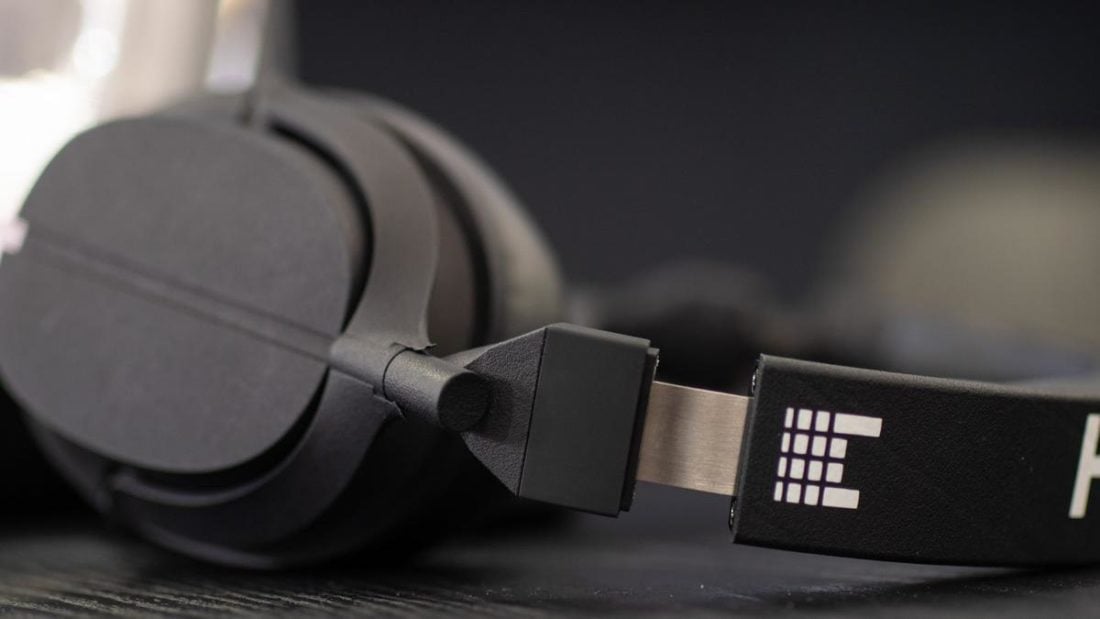
For me, the highlight of the booth was something else though: the opportunity to meet the legend, Axel Grell himself. He was more than willing to share his thoughts on the tuning of headphones and the latest tuning trends and I wished the conversation would never end.
Of course, I took a corny selfie to mark this event, because why not?
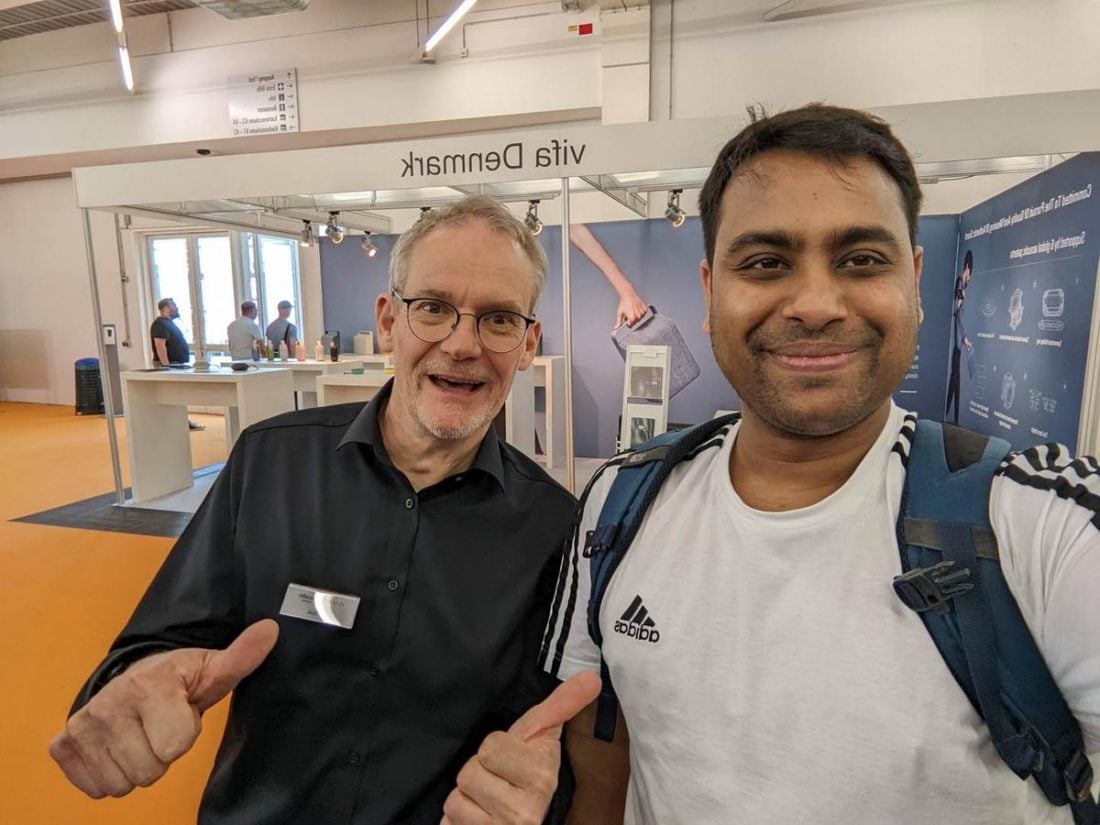
Meze Audio
Meze Audio’s booth was one of the busiest in the entire show with people pouring in to listen to their Empyrean and Elite headphones. Unfortunately, I could not meet with Antonio Meze (the founder) but I had a great time talking with the reps present on the show floor.
Meze had the prototype of the upcoming Meze 109 Pro headphones, and these are definitely the biggest surprise of the show for me.
The 109 Pro have a warm, inviting tuning that does not skimp on technicalities.
They almost sound like super-charged Sennheiser HD650, I daresay. The driver has a bio-cellulose dome with a Beryllium surround and is encased in a metal shell. If the final product is further refined, I see them being one of the benchmark headphones in near future. Here’s hoping.
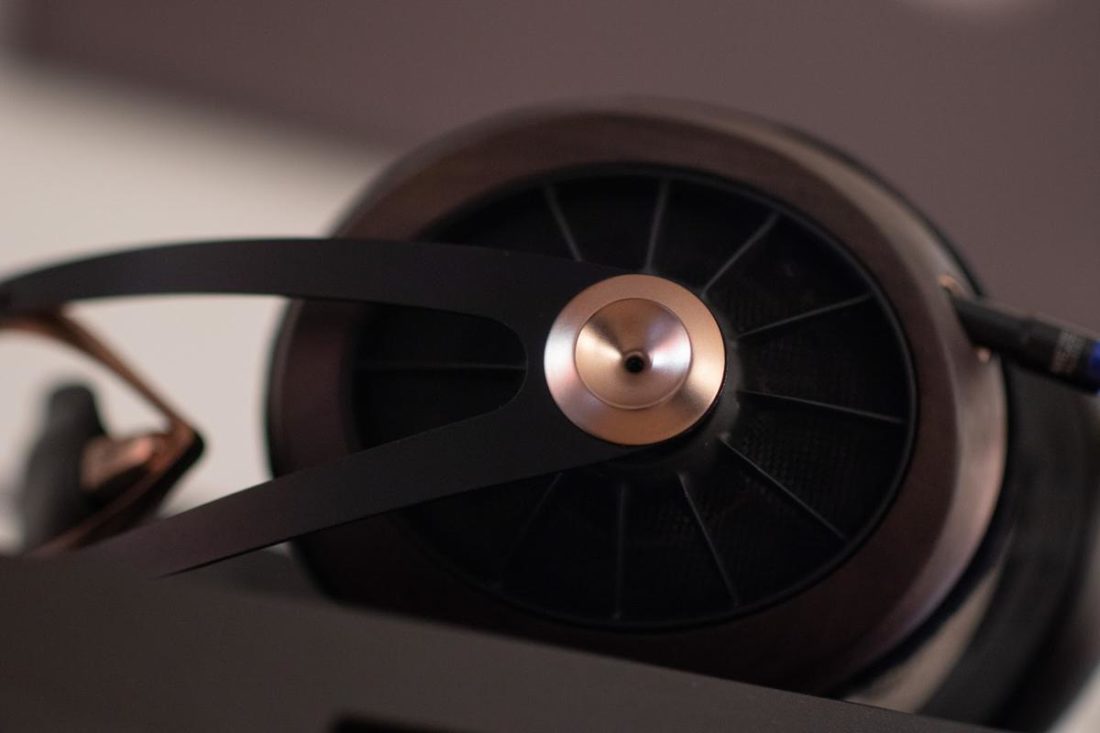
The Meze Elite were there, being driven by a Ferrum OOR + Hypsos stack. These are one of the best TOTL headphones around. Without a doubt, give them an audition if you’re looking to shop in that range.
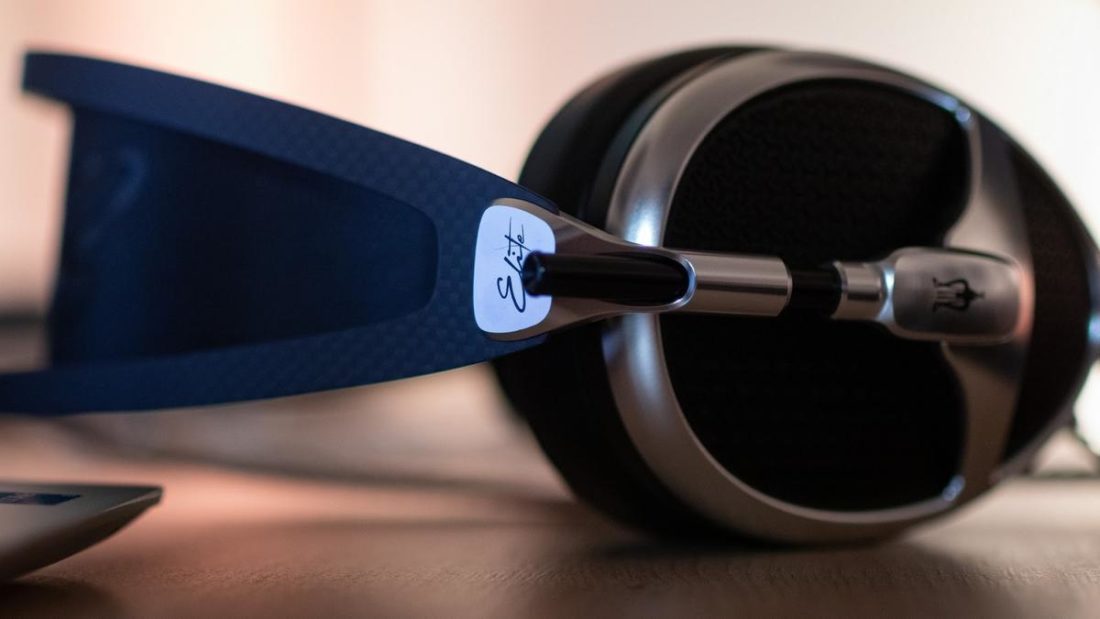
Meze also had their single-dynamic flagship IEMs, the Advar, on display. The tuning is a departure from the usual Meze house sound, with warm-mids counter-balanced by a fairly prominent lower-treble peak. I have already received a review unit of these, so look forward to the upcoming review.
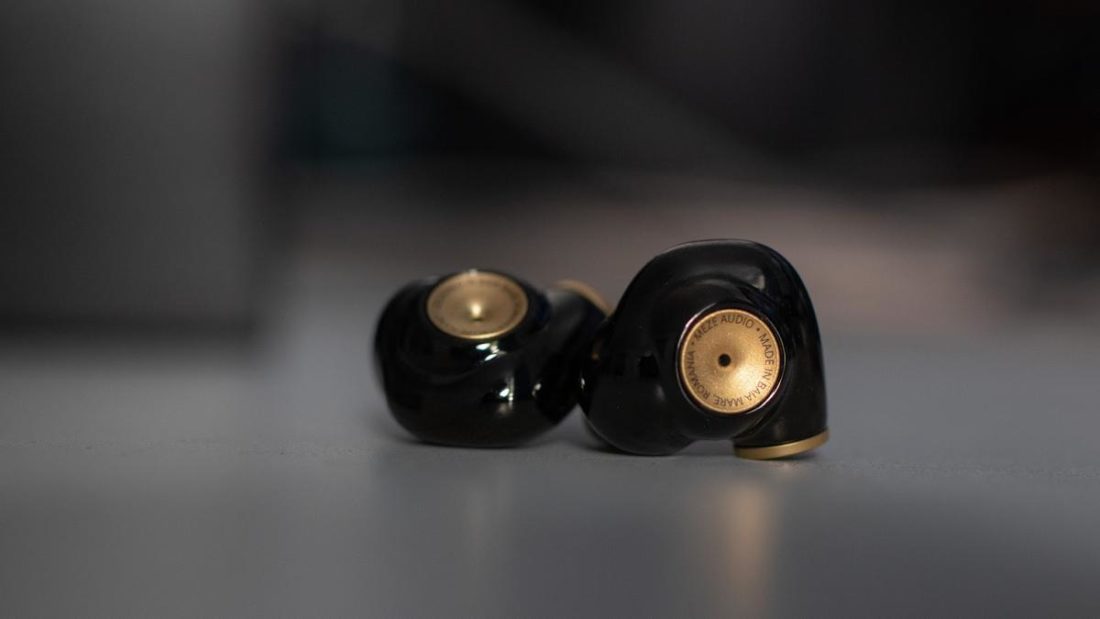
RAAL-Requisite
RAAL-requisite had their flagship ribbon headphones on display, the SR1a. As usual, the SR1a offer class-leading staging, imaging, and a surprisingly even tonality. If being stationary is not a concern and you are willing to fiddle with the fitment a bit, these are good contenders for summit-fi buyers.
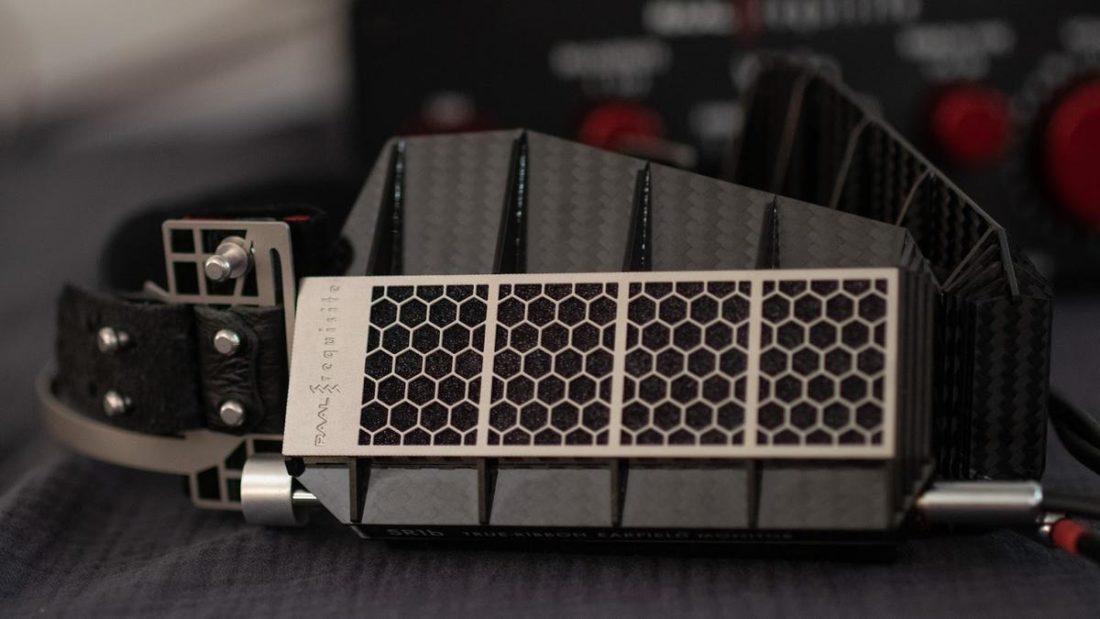
What interested me the most was their newly released VM-1a tube amplifier. The Vm-1a offers three different operating modes: triode, ultralinear, and pentode, with each noticeably altering the presentation. The pairing with the SR1a is excellent with the bass becoming richer and even more textured.
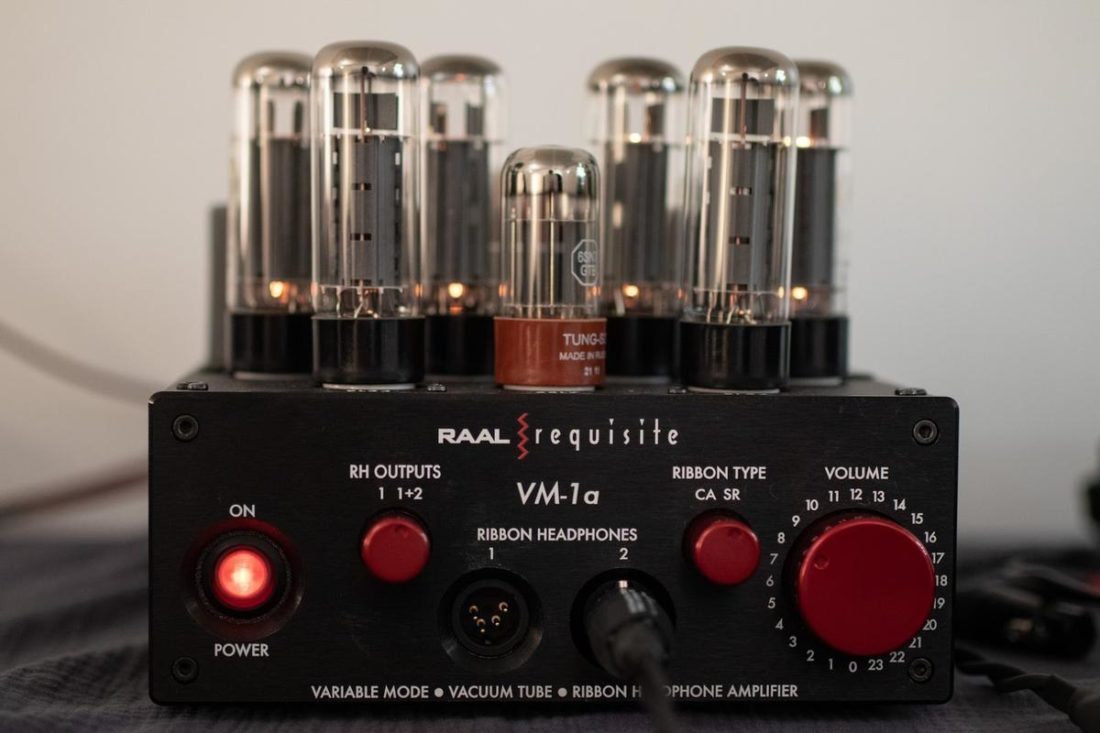
Spirit Torino
Spirit Torino is based in Italy and primarily focuses on dynamic driver headphones. Their design language is unique and the Spirit Torino Mistral is perhaps the best showcase of this. The blue earcups and the unique steel headband design make them stand out.
As for the sound, they are very good for a pair of Bluetooth headphones. I can still detect some compression in the bass frequencies but that is relatively minimal when compared to mainstream Bluetooth headphones. The high cost is the biggest deterrent here, with wired headphones being better performers in this price range.
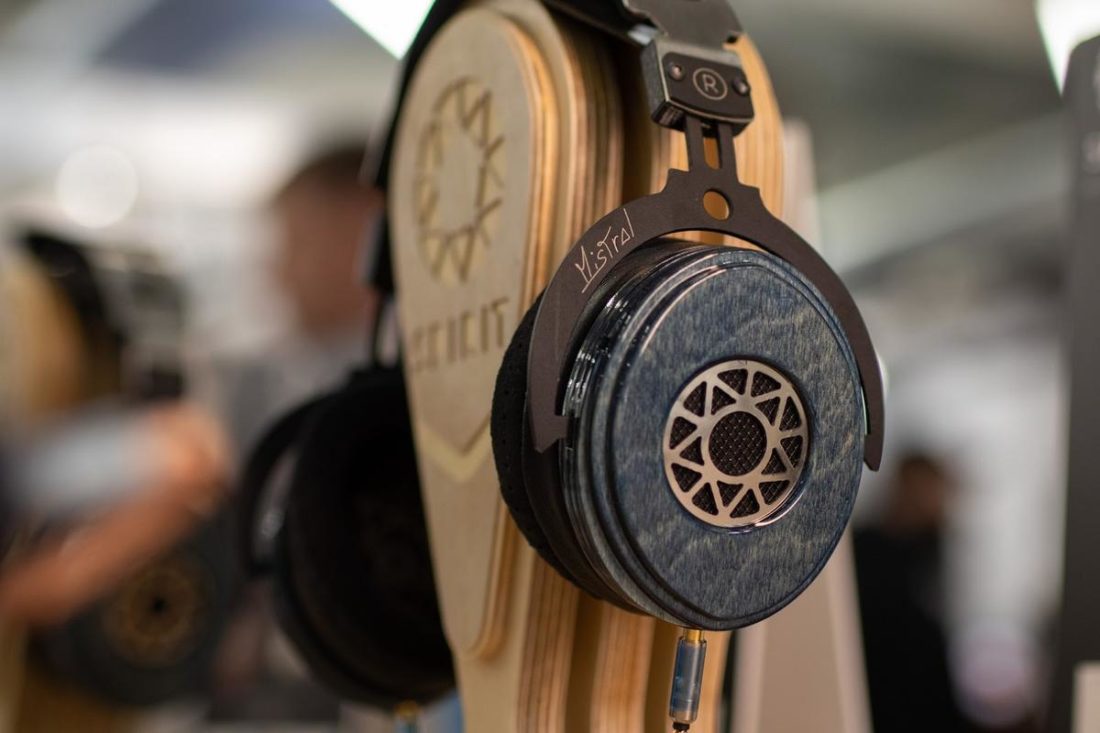
If the Mistral are unique, then the Spirit Torino Valkyria are beyond overkill.
The earcups are milled out of a solid Titanium block, and the attention to detail is absurd. I will let the pictures do the talking.
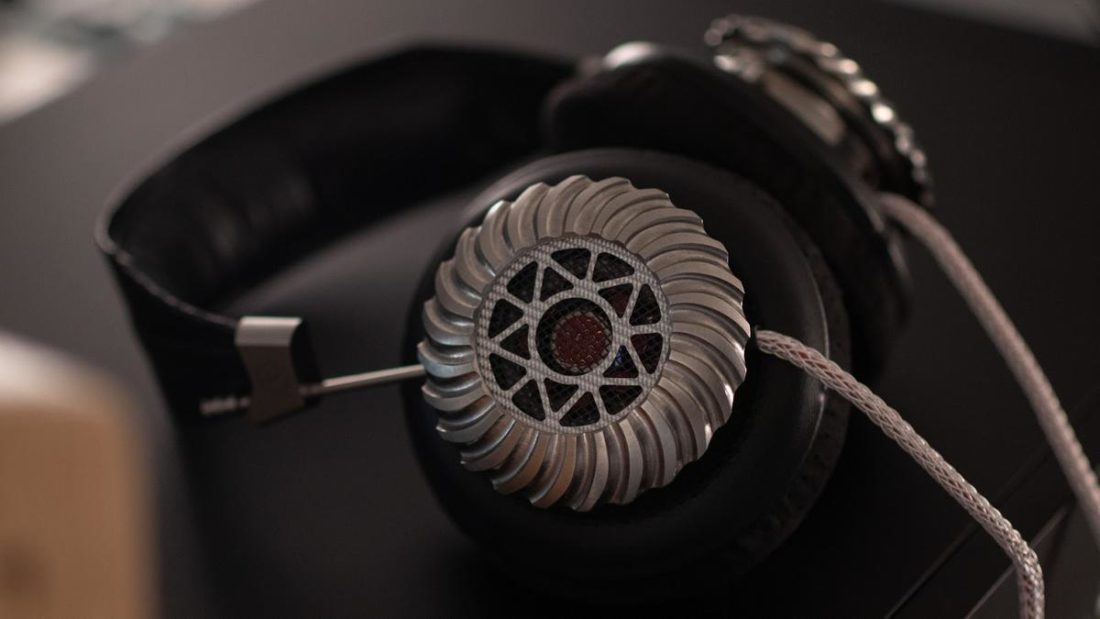
As for the sound: the Valkyria sound like very good two-channel speakers with exceptional stage height, depth, and slamming bass. That’s about the best description I can come up with.
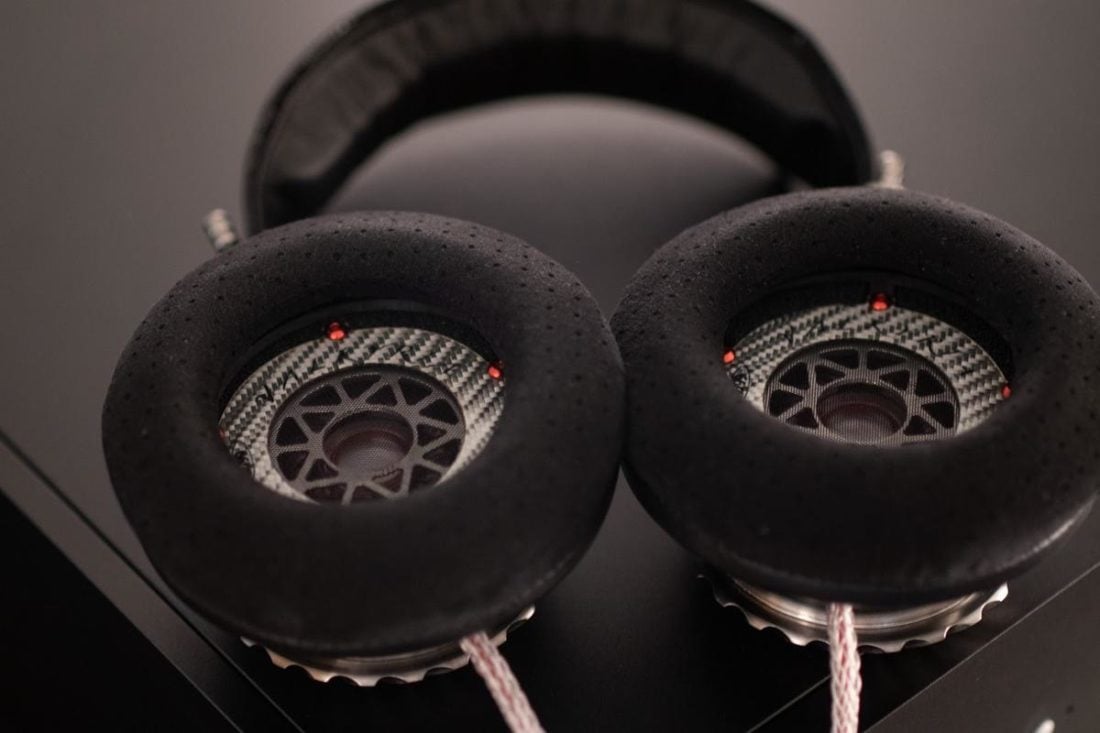
Stax
Stax is perhaps the first name that comes to mind when thinking of electrostatic headphones. When I found out that their newest flagship, the SR-X9000, were neatly set up in a quiet room, I allocated 30 minutes for the X9000.
I am so glad that I did.
The SR-X9000 are one of the best headphones in the world, hands down!
These have unbelievably fast transients. The bass hits hard and deep and has exceptional texture, which is something very few electrostats can reproduce. The build quality is a marked improvement over previous Stax headphones and they are very comfortable to boot.
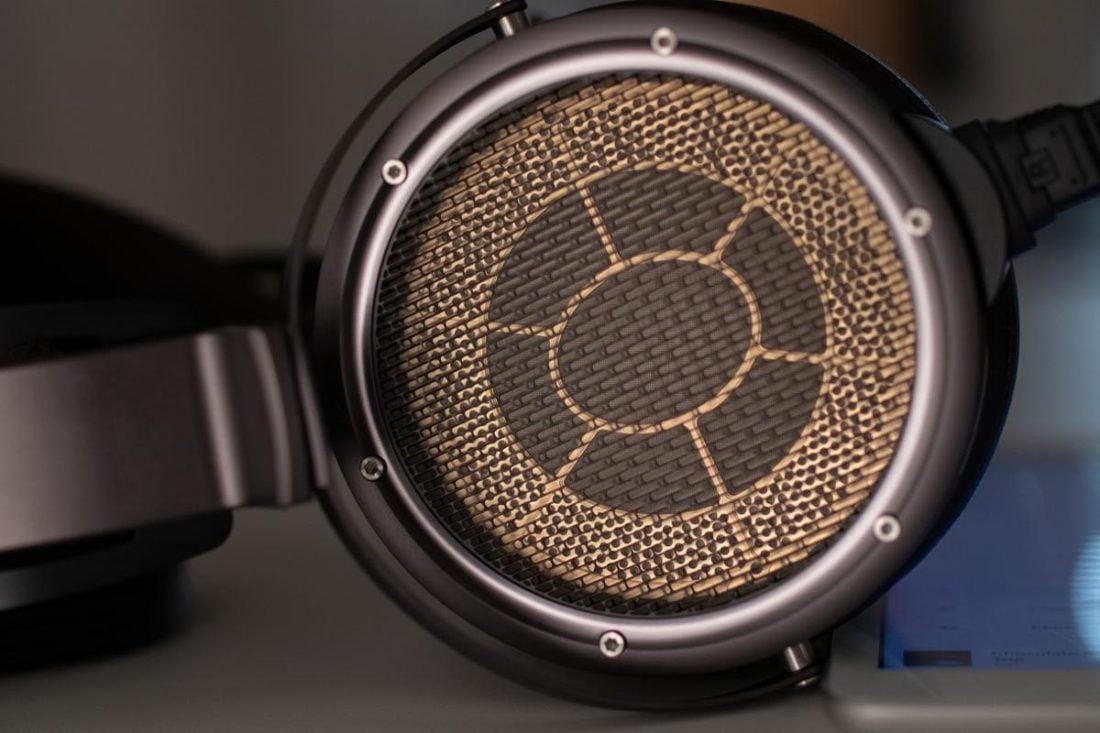
The staging is not as wide as the RAAL SR1a but has exceptional depth. Imaging is precise, and microdynamics are spot-on. The best part, though, is the uncanny ability to portray the “speed” of songs.
This is something very hard to explain and you have to hear them in person to get a feel for it. Basically, you can isolate the differing rhythm and speed of each instrument being played. Again, best heard in person than described in words.
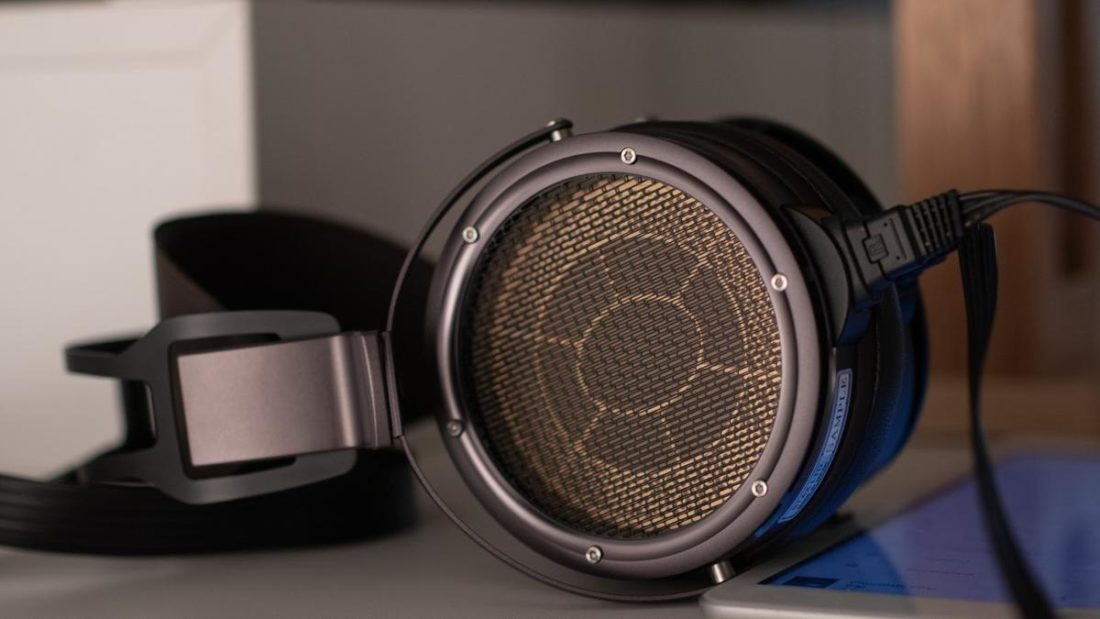
The X9000 were driven by the matching energizer: SRM-T8000. I find the pairing to be endgame-worthy though some have expressed that third-party energizers like Headamp Blue Hawaii should fare even better.
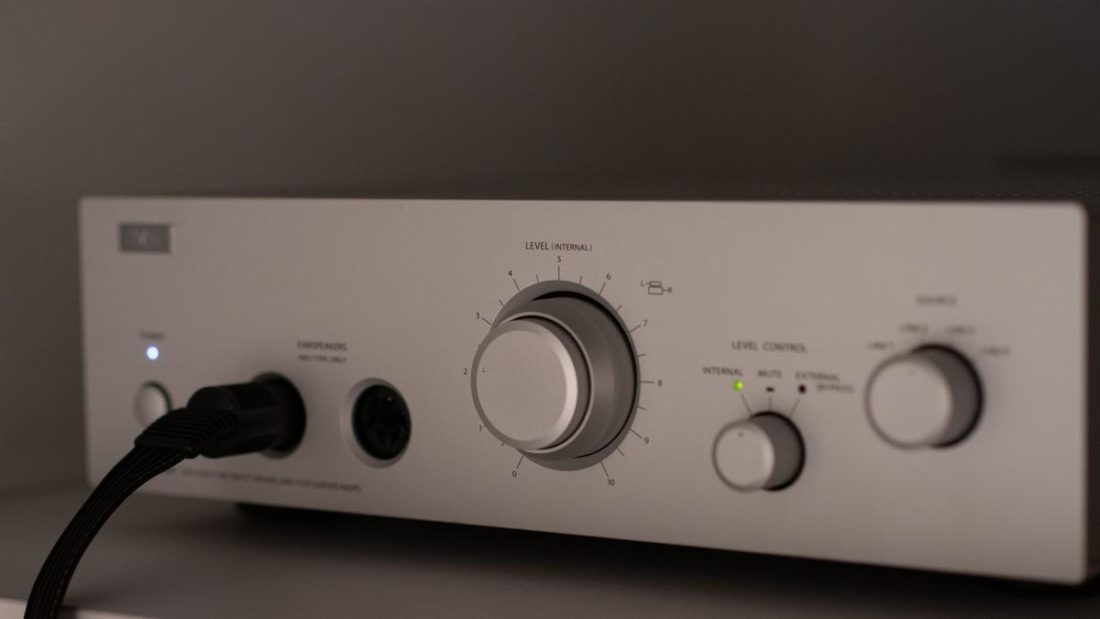
I also tried the Stax SR-009S that were set up right beside the X9000 but I found them to be a noticeable step down in comparison.
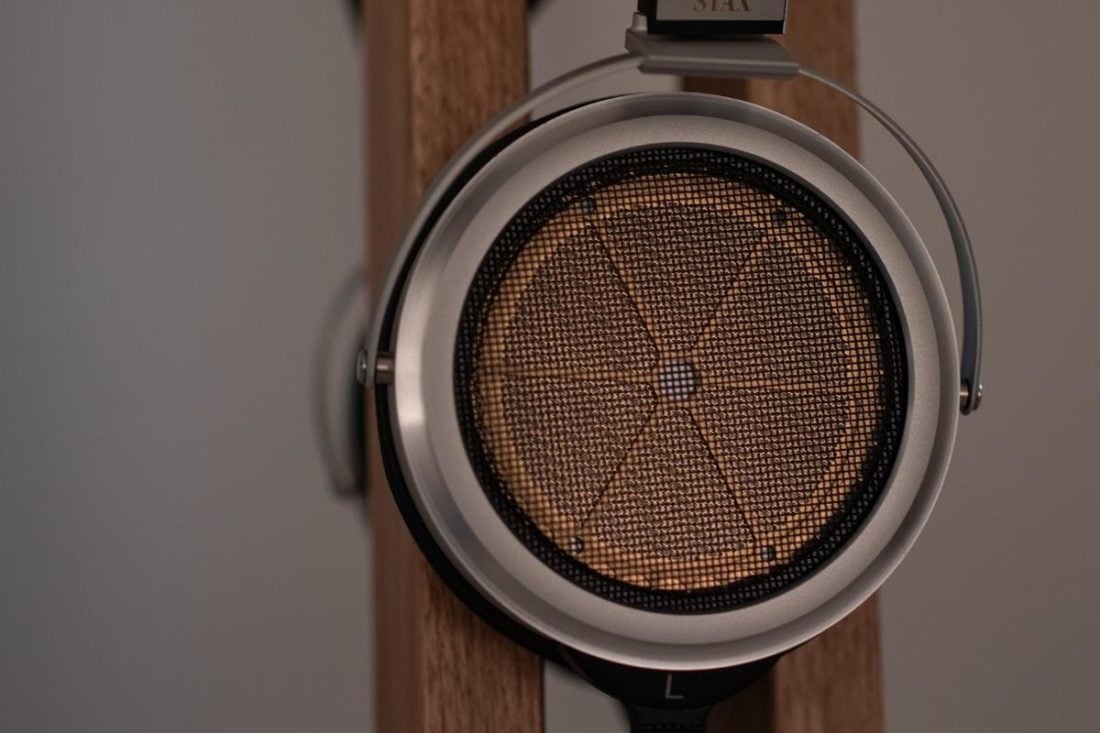
Warwick Acoustics
Warwick Acoustics is based in the UK and their offerings cater to the summit-fi range. As a result, it is difficult to come across their headphone systems too often, so I couldn’t pass up the opportunity to listen to their current lineup.
Fortunately, the booth was very quiet and the reps were extremely friendly in setting up and explaining the headphone systems in question.
First up: the Warwick Acoustics Bravura. Warwick has an entire system of DAC, energizer, and headphones that are matched together. The Bravura have a warm, rich signature which is rare among estats. The staging is not as wide as other summit-fi offerings like 1266TC, but the holographic imaging makes up for that.
The Bravura are not as resolving as the Stax, but are more forgiving to poor mastering and offer a laid-back tuning.
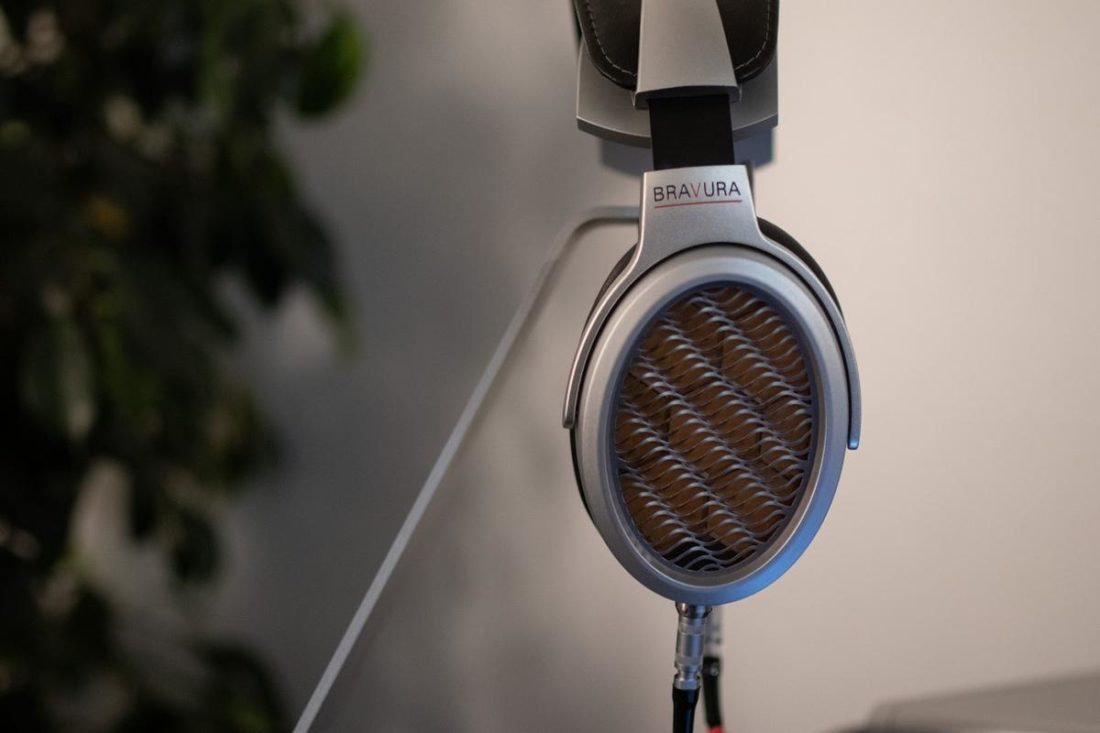
Then I heard the Warwick Acoustics Aperio, their flagship system.
The Aperio system was the best I heard during the entirety of the show!
.
Exceptional transparency, speed, and an engulfing soundstage. At times, the transparency can expose too many mastering flaws, but the Aperio never veer into harshness or “bright” territory, not to my ears.
The Aperio are legit alternatives to the Sennheiser HE-1, and cost nearly half of the Sennheiser system. Moreover, Aperio can be ordered and delivered within a couple of weeks, whereas the HE-1 have a lead time of many months.
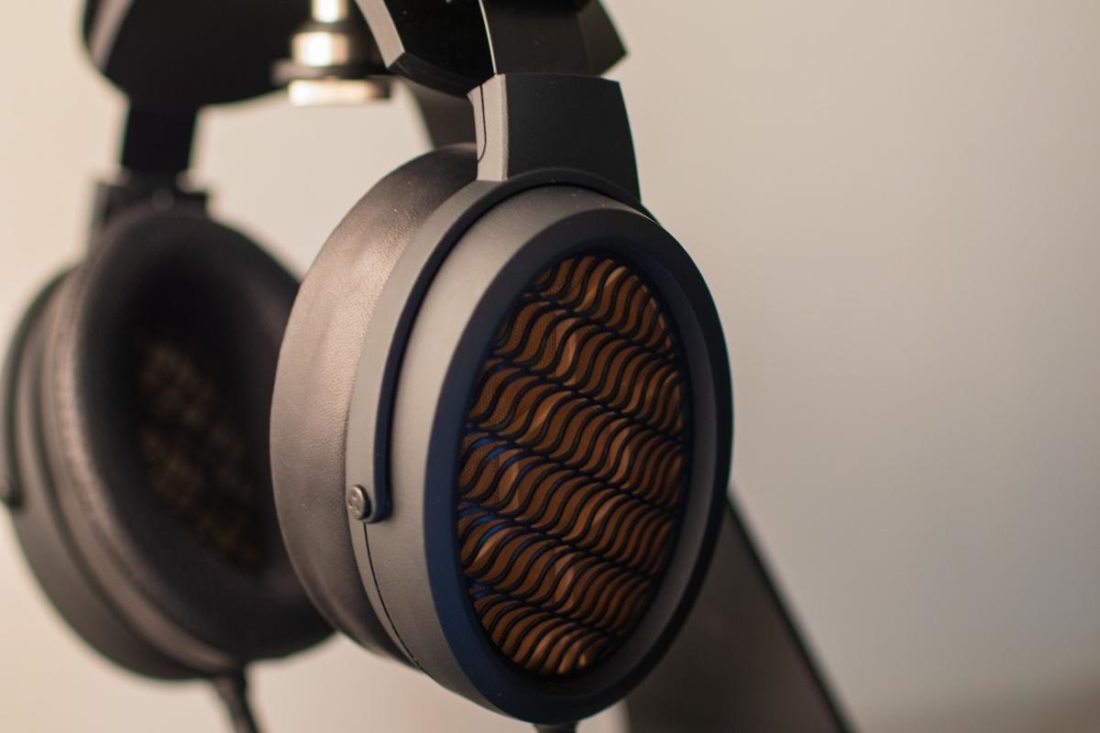
I also had the chance to see the drivers up-close, with the Aperio driver being a dual-sided push-pull setup. This particular estat design has a more organic timbre than the usual Stax drivers (except the X9000), which I found a welcome change.
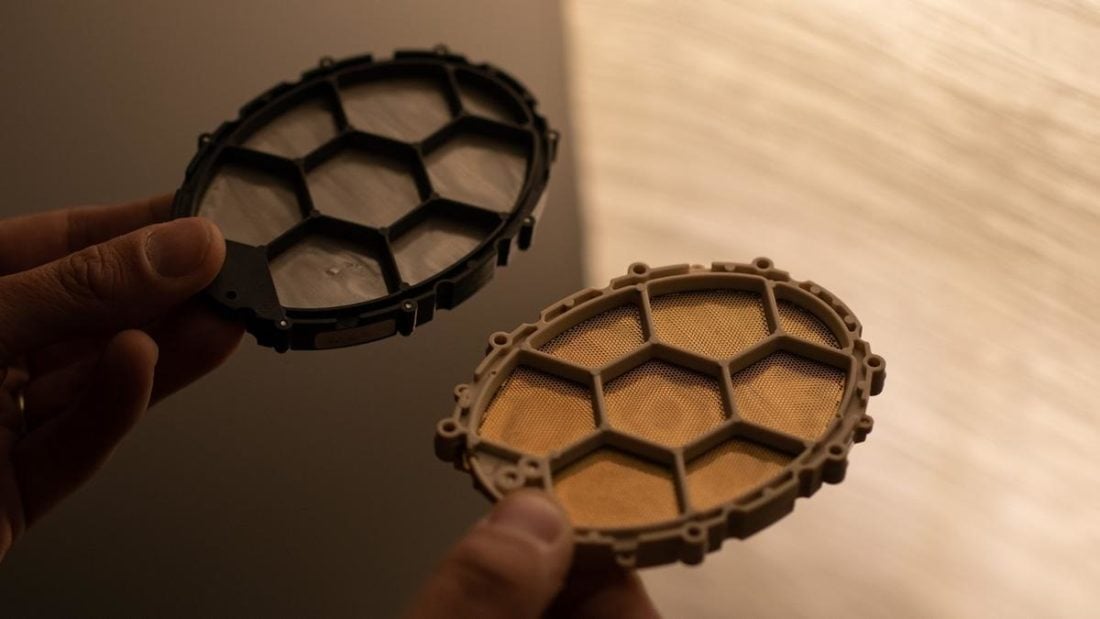
The Aperio definitely left a lasting impression on me, and I look forward to hearing them again.
Zaehl
I found the Zaehl HM-1 in the HEDDAudio booth, and I had a chat with the rep there. He suggested that I try this amazing new headphone amp.
I have not encountered Zaehl before, but hearing the amp once was proof positive that these guys know their trade. Priced around 8000 euros, the HM-1 will not be for everybody., but it has features like volume-matched A/B among sources that will be a godsend for professionals.
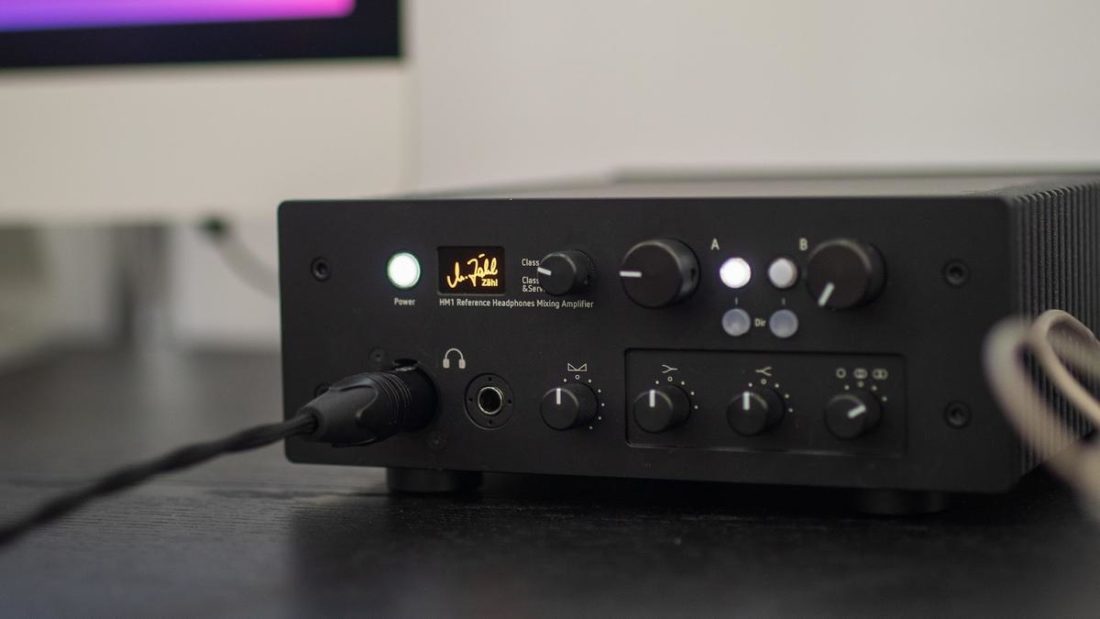
As for the sound, the HM-1 has exceptional transparency and gobs of power on tap. The Hifiman HE-6se and HEDDPHONE V2 are notoriously difficult to drive, but the HM-1 barely broke a sweat. In class-A + Servo mode, I heard the HE-6se slam harder than even out of speaker taps.
Definitely one of the contenders for an endgame solid-state amp.
Closing Thoughts
In the end, the HIGH END Munich 2022 was well worth the long wait. I met with fantastic people, listened to some of the best headphones on this planet, and most of all – learned a lot in the span of just two days.
My only regret is not being able to attend the show for longer, as I had some office work that kept me from attending the show on the first two days (which was open for media personnel only).
Nonetheless, the show was a memorable one for me, and I hope I can make it to the next HIGH END Munich International Audio show, hopefully in 2023.
